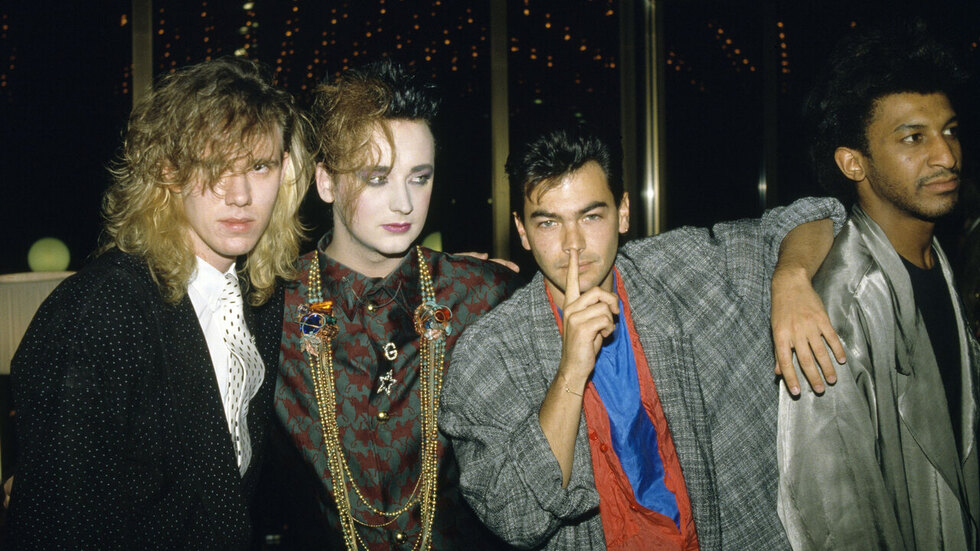There was no sign of Boy George on the red carpet. But his absence didn’t mute the presence of Culture Club at the Tribeca Film Festival, where Roy Hay and Mikey Craig, two of the band’s founding members, introduced Boy George & Culture Club, a new documentary by Alison Ellwood.
The film, which premiered this week in New York, revisits the rise and unraveling of the British band that, in the 1980s, became a cultural force as much as a musical one—breaking molds, bending gender lines, and soundtracking a generation with hits that now feel both timeless and subversive.
“It took a bit of persuading because we’ve had horrendous experiences with documentaries”, Hay said during a Q&A. “but this one gets it right- we were being ourselves, telling our stories and it was actually very moving”.
Culture Club emerged from the margins—four young outsiders who collided in the confusion of early ’80s London. Their sound mixed soul, reggae, new wave. Their look was impossible to categorize. And their frontman, Boy George, made gender fluidity visible on global television long before the term existed in the mainstream. Do You Really Want to Hurt Me and Karma Chameleon weren’t just pop songs. They were provocations—delivered in makeup and irony, laced with longing and ambiguity.

he new documentary Boy George & Culture Club, premiered at the 2025 Tribeca Film Festival
But the success came with a price. The documentary confronts the inner chaos: especially the hidden romantic relationship between George and drummer Jon Moss: “I was really attracted to him, like a crush, although I never had a relationship with a man before,” Moss says in the film. “And I was absolutely smitten”. Their volatile romance, once kept hidden, became a fault line in the band’s dynamic—both creatively productive and personally destructive.
“I miss Jon,” Hay admitted. “I’d love nothing more than to see him playing the drums to be quite honest. George is the most talented artist and creative force I’ve ever met in my life.” He criticized the modern music industry for what he called a “loss of real bands” as creating music has become a more solitary affair. “It’s all autotune and producers now. No one plays together anymore,” he said. “I’m with Dave Grohl on this—get in a garage with friends and make noise. The rest is plastic.”
At its height, Culture Club was everywhere—and so was Boy George. But visibility had consequences. His femininity, his queerness, his heroin addiction, his public unraveling—he became a lightning rod for Britain’s right-wing press, particularly during the moral panic of the Thatcher years. Section 28, the notorious law that banned “promotion of homosexuality” in schools and public institutions, turned LGBTQ+ lives into political targets. Support dried up. George was left exposed.
But not silent. In 1988, at a time when many thought his career was over, he released No Clause 28, a protest track produced by his indie label More Protein. He threw himself into the underground: illegal raves, acid house, DJ sets. Resistance became rhythm. Music, again, was the medium.
Ellwood’s documentary isn’t just a band biography. It’s a reminder of what Culture Club stood for: a defiant anomaly in an era that demanded conformity. A gay man, a Black Jamaican, a Jewish punk, a blond Essex boy. They weren’t a brand—they were a disruption. And somehow, they made it work.
“We were the band that for many kids who couldn’t find a home or couldn’t find their way, they found Culture Club”. Craig said. “We reached out to many people who society would otherwise have cast off”.
Today, Culture Club still exists—intermittently. They dissolve, reunite, argue, reconcile. On Instagram, George summed it up: “We’re like Karma Chameleon. We come and go. But somehow, we always find our way back”.












